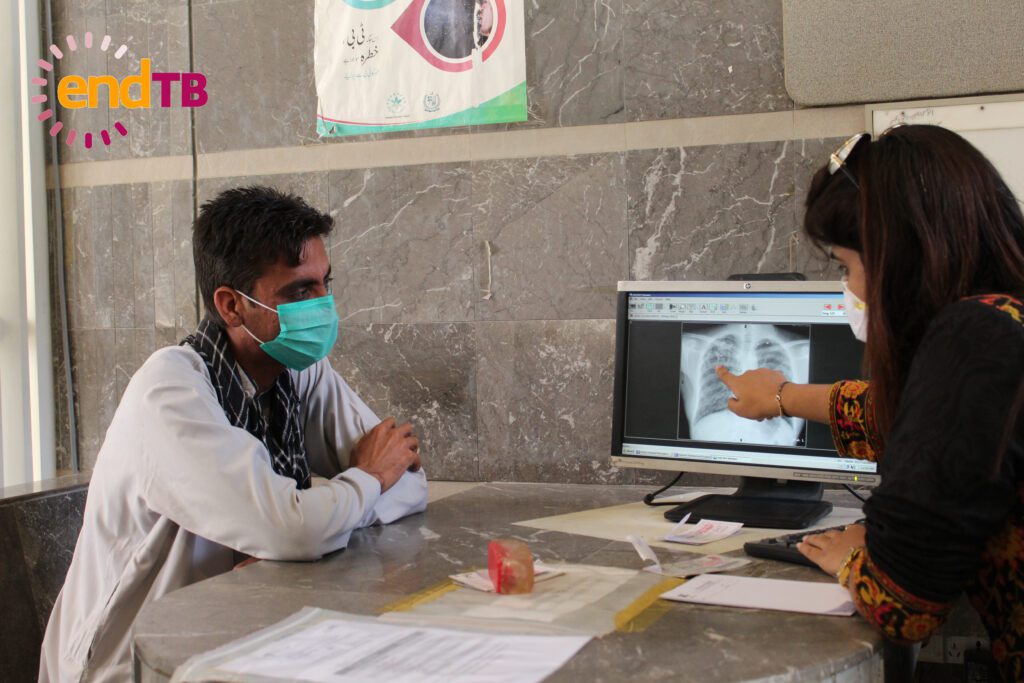- Web
- Feb 15, 2026
Game-changer in TB treatment: trial discovers shorter regimens for multidrug-resistant strains
-

- Web Desk
- Dec 07, 2023

Drug-resistant tuberculosis (DR-TB) is a serious public health problem in Pakistan, where an estimated 16 000 people develop drug resistant TB (DR-TB) cases every year. Doctors Without Borders/Médecins Sans Frontières (MSF) has been working in Pakistan since 1986 and has been providing diagnosis and treatment for DR-TB since 2021.
In a landmark development, the “endTB” clinical trial, conducted by a consortium featuring Médecins Sans Frontières (MSF), Partners In Health (PIH), Interactive Research and Development (IRD), and other collaborators, has delivered groundbreaking results for the treatment of multidrug-resistant tuberculosis (MDR-TB). After six years of extensive research involving 754 participants across seven countries, including Pakistan, the trial’s findings, disclosed on November 15, 2023, reveal three innovative all-oral, shortened drug regimens—incorporating bedaquiline, delamanid, clofazimine, and linezolid. These regimens demonstrate comparable efficacy and safety to conventional treatments while slashing the treatment duration by up to two-thirds. The implications of these results, combined with those from the TB-PRACTECAL trial sponsored by MSF, usher in a new era with five patient-centered, all-oral MDR-TB regimens, some completing treatment in nine months or less. If endorsed by the World Health Organization, this transformative approach promises to empower clinicians to offer shortened MDR-TB treatments irrespective of age, pregnancy, or comorbidities—a monumental shift in the landscape of MDR-TB treatment.
Dr Shoaib Muhammad, a medical coordinator for Doctors Without Borders/Médecins Sans Frontières (MSF), spoke to HUM News English on the issue recently.
Question: There has been a lot in the news recently about new developments in the diagnosis and treatment of DR-TB. What is MSF doing in Pakistan to treat the disease?
Answer (Dr Shoab Muhammad): MSF is an international medical humanitarian organization working in Pakistan since 1986, with healthcare projects in all provinces of the country. Among the health services it provides, MSF offers integrated TB care to the patients in close collaboration with the National Tuberculosis Control Programme (NTP). Since the end of 2021, MSF has been running a drug-resistant TB (DR-TB) project at the Gujranwala teaching hospital to treat DR-TB. As of October 2023, over 270 patients with DR-TB have been registered in the programme.
Tuberculosis (TB) is one of the world’s top infectious killers. Drug-resistant tuberculosis (DR-TB) is a form of TB that does not respond to the TB drugs usually used to kill the infection. As a result, DR-TB is harder to cure. TB can be resistant to multiple TB drugs, which means that each personʼs regimen might look different to others.
At the Programmatic Management of Drug-Resistant Tuberculosis (PMDT) site, MSF medical team uses a new 10-color Gene-Xpert machine to help diagnose and profile extensively drug-resistant tuberculosis and select the best treatment. Contrary to previous tests, it works on a molecular level to identify in real-time Mycobacterium tuberculosis. This means that it does not use microscopy but a kind of chemical test to look for the TB bacterium. Rapid molecular tests such as Cepheid’s GeneXpert can deliver highly accurate diagnosis of TB and DR-TB in two hours. Additionally, samples from the patients are sent to PRL (Provincial Reference Laboratories) and National Reference Laboratory based in Islamabad. MSF provides follow-up of the patient comorbidities, as well as patient education and psychological care, together with social support. MSF outreach team ensures the screening of household members to ensure a comprehensive care approach. Treatment provided by MSF in Gujranwala PMDT site consists of BPal(M) regimen. This is a new shorter regimen, recommended by the World Health Organization and adopted by the Ministry of Health in Pakistan that consists of the oral drugs bedaquiline, pretomanid, and linezolid. It is a six to nine months regimen that replaces the previously recommended less effective 18 to 24 months treatment, for patients less than 15 years old with highly resistant TB.
Question: Does MSF treat TB elsewhere in the world?
Answer: MSF is the largest non-governmental provider of TB treatment worldwide and has been involved in TB care for 30 years, often working alongside national health authorities to treat people in a wide variety of settings, including conflict zones, urban slums, prisons, refugee camps, and rural areas. In 2022, MSF treated more than 17,000 people with TB, including 2,300 people with DR-TB, in over 60 TB projects in 41 countries, including 18 out of the 30 countries on the WHO TB high burden list, and an additional 3 countries on the WHO DR-TB high burden list.
Question: How does MSF advocate for more affordable and available TB medicines and tests across the world?
Answer: In September, MSF welcomed a 50% price drop for bedaquiline by the pharmaceutical corporation Johnson & Johnson to US$130 per six-month treatment course, which resulted from generic competitors entering the market and has finally brought the price closer to the target price of $0.50 per day as estimated in 2017. This was a result of a decade-long advocacy by TB activists, civil society, and MSF that had been calling on J&J to drop the price.
After 10 years and thanks to MSF’s campaigning, Danaher and Cepheid, two diagnostics companies, announced they were reducing the price of the main drug-resistant TB test (Xpert MTB/RIF) by 20% in high-TB-burden countries such as Pakistan, from $9.98 to $7.97 per test. While a major step forward, the corporations are, however, not reducing the price of the test for extensively drug-resistant (XDR) TB, which is the deadliest form of TB. The price of this test (Xpert MTB/XDR) remains exorbitant at $14.90.
Question: How does MSF research activity help reduce transmission of and morbidity and mortality from MDR-TB?
Answer: In 2017, a consortium of organizations including Médecins Sans Frontières (MSF), Partners In Health (PIH), Interactive Research and Development (IRD), and other partners, launched the “endTB” clinical trial seeking treatment for the toughest strains of TB.
endTB was launched because conventional treatments for MDR/RR-TB were long (up to 24 months), ineffective (only 58% treatment success in 2017) and often caused terrible side effects, including psychosis and permanent deafness. All the while, patients were taking up to 14,000 pills and most had to endure months of painful, daily injections. Moreover, the cost, difficulty and length of such treatments made them hard to implement in many high-burden countries.
Following six years of clinical trial enrolling 754 participants from seven countries, including Pakistan, the ground-breaking endTB results made public on 15th November 2023. These provide robust evidence for three new all-oral, shortened drug regimens – containing bedaquiline, delamanid, clofazimine, and linezolid – that can deliver similar efficacy and safety to conventional treatments while reducing treatment time by up to two-thirds. In addition, the trial supports the use of a fourth regimen as an alternative for people who cannot tolerate bedaquiline or linezolid (at least one of these two drugs is in every current WHO-recommended regimen for MDR-TB).
Results from endTB, together with those of the TB-PRACTECAL trial, also sponsored by MSF, will have a lasting impact on MDR-TB treatment. For the first time ever, there is a suite of 5 all-oral regimens – including TB-PRACTECAL’s BPaL(M) – that are effective in 9 months or less. If recommended by the World Health Organization, these new patient-centered treatment regimens would empower clinicians to offer shortened MDR-TB treatment regardless of age, pregnancy, and comorbidities that are common among people with MDR-TB. The landscape of MDR-TB treatment—and the evidence underlying it—has been completely transformed.
Question: Why is this important for Pakistan?
Answer: According to the World Health Organisation (WHO), Pakistan ranks fifth among tuberculosis high-burden countries and fourth for drug-resistant tuberculosis worldwide. Pakistan also has a high TB and MDR-TB burden, with one of the highest incidences of MDR-TB cases in the world: 16000 estimated RR/MDR-TB cases among 611,000 notified TB cases in 2021. To improve case-finding, the National TB Program plans to increase drug resistant TB testing. This will greatly help shorten the time needed to detect the drug resistant TB cases and to start the early treatment, possibly with shorter all-oral regimens.
The new patient-centered treatments will provide alternatives to the existing MDR/RR-TB regimens and help reduce transmission of and morbidity and mortality from MDR-TB. They will empower clinicians to tailor shortened MDR/RR-TB treatment to individual patient characteristics and conditions, regardless of age, pregnancy, and comorbidities (including HIV, diabetes, and Hepatitis B and C, substance use disorders) that are common among people with MDR/RR-TB. They will also increase the overall availability of drugs for TB. The trial results will help improve access to treatment beyond 23% of MDR-TB patients reported to have received any treatment with second-line drugs. The shorter 6-month regimen will also contribute to reducing the drop out of patients on treatment.
MSF has a long experience in advocating for effective drugs, tests, and vaccines in order to bring down barriers that keep people from getting the treatment they need. This experience can help support health authorities in high TB incidence countries such as Pakistan in asking drug companies such as Danaher and Cepheid to further reduce the cost of XDR-TB test cartridges of Gene-Xpert testing machines.
Question: What is the current data of TB patients?
Answer: Despite being curable, tuberculosis (TB) is one of the world’s deadliest infectious diseases. In 2022, an estimated 1.3 million people died—more than two people every minute—and 10.6 million people fell ill with TB. This includes 410,000 people who fell ill with drug-resistant TB (DR-TB).
Pakistan has a high TB and MDR-TB burden, with one of the highest incidences of MDR-TB cases in the world: 16000 estimated RR/MDR-TB cases among 611,000 notified TB cases in 2021. MDR-TB estimates are 2.5% among new TB cases (WHO Global TB Report, 2021).
According to the provincial TB control programme, Punjab estimates 268,000 cases of tuberculosis annually, with 8,900 cases of multi-drug resistant tuberculosis. However, many DR-TB cases still go undetected.




